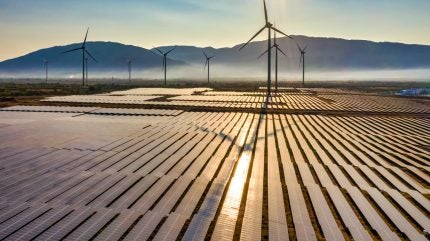
Southeast Asia has the potential to tap into abundant renewable resources to satisfy its rapidly increasing electricity demand, according to a new report of the International Energy Agency (IEA).
In 2024, electricity consumption in the region surged by over 7%, nearly twice the global average, and is projected to double again by 2050. This surge is fuelled by swift urbanisation, industrial expansion, and improving living standards.

Discover B2B Marketing That Performs
Combine business intelligence and editorial excellence to reach engaged professionals across 36 leading media platforms.
Southeast Asia has an estimated 20TW of untapped solar and wind potential.
The report suggests that even a fraction of this could significantly contribute to meeting the soaring demand while enhancing energy security.
Currently, many countries in the region are heavily reliant on imported fuels, making them vulnerable to global market volatility and supply disruptions.
With eight of ten Association of Southeast Asian Nations (ASEAN) member states setting net-zero emissions targets, policy instruments such as competitive auctions and direct power purchase agreements are being employed to foster renewable adoption.

US Tariffs are shifting - will you react or anticipate?
Don’t let policy changes catch you off guard. Stay proactive with real-time data and expert analysis.
By GlobalDataAccording to the IEA report, the challenges associated with integrating variable renewable energy sources such as solar and wind are manageable.
Proven low-cost measures can be adopted without major system overhauls, including enhancing flexibility in existing power plants, improving forecasting, and modernising grid infrastructure.
Measures such as smart air conditioners and electric vehicle charging and storage can further facilitate integration while reducing consumer costs.
The report also highlights regional initiatives that support clean energy deployment, including the ASEAN Vision 2045 and the upcoming renewal of the ASEAN Plan of Action for Energy Cooperation.
In recognition of Southeast Asia’s growing influence on global energy trends, the IEA has established the IEA Regional Cooperation Centre in Singapore, its first office outside Paris, France.
This centre aims to assist the region in addressing renewable integration, grid modernisation, and energy transition challenges.



